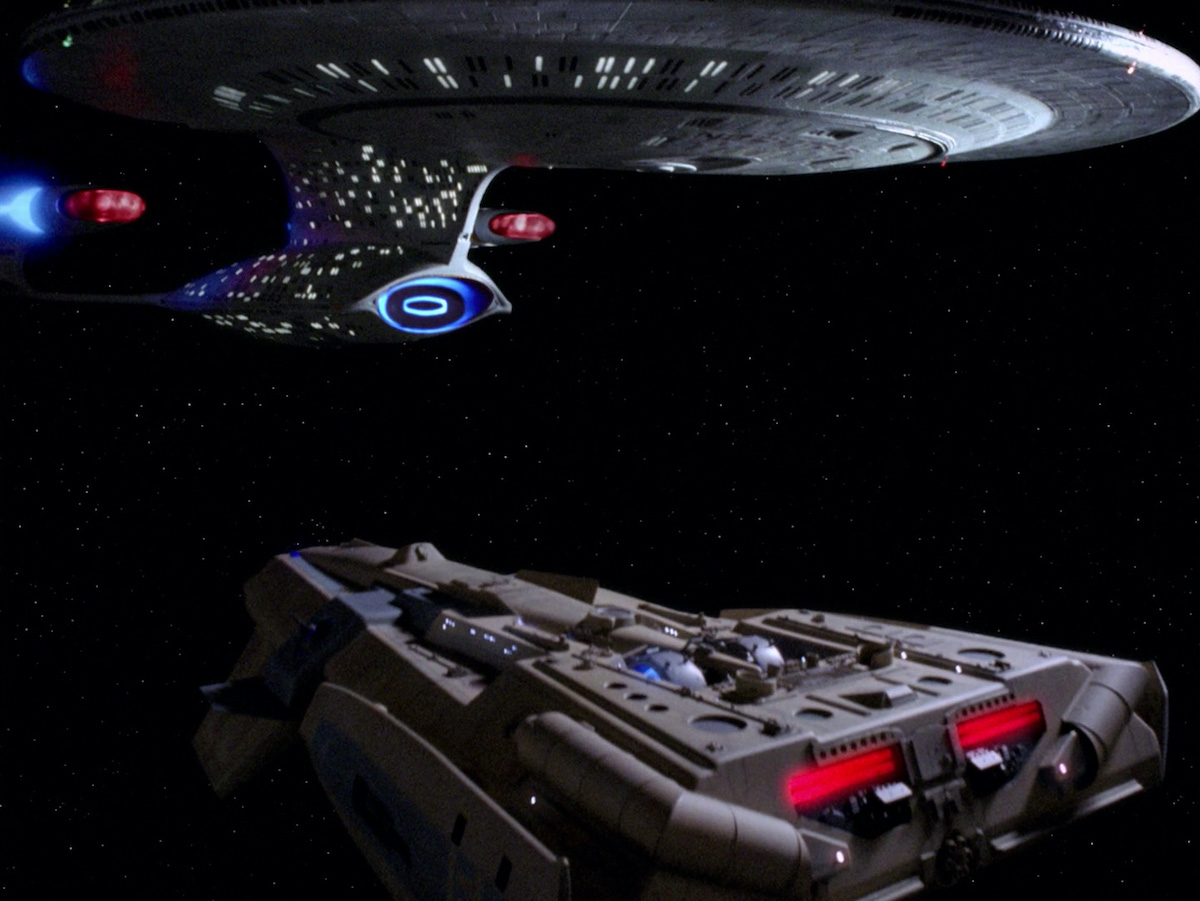“Loo loo loo loo loo! Loo loo loo!”
This is one of my favourite Data episodes, a deeply dark and fairly unsettling one-off in which the android is abducted by Kivas Fajo (Saul Rubinek), a collector of unique items from across the galaxy. It’s a rare instance of an episode getting to have its cake and eat it too, in spite of the audience being ahead of the majority of the principal characters; we are treated to some really well-diagrammed emotional scenes about what life would be like aboard the Enterprise if Data died, in spite of the fact that we know from the outset that Data is alive. Data, too, is given a juicy intellectual/moral puzzle to work his way through, as Kivas Fajo himself comments by the end of the episode. He’s not wrong. There is a tendency in Star Trek to play Data’s emotionlessness as “cute.” This episode takes it in a refreshing, but disturbing, other direction. That Fajo is a sociopath is scarcely in question – but Data’s emotionlessness, and his consequent lack of empathy, can be a frightening thing, too. There are some startling performance beats from Spiner in this one, particularly towards the end, and they are all the more unnerving for the degree to which they remain completely in character.
Given that the episode begins with Data’s shuttlecraft exploding, things are grim from the outset. There’s a real melancholy to Wesley and Geordi cleaning out Data’s quarters; we see the complete collection of Data’s mementos from “The Measure of a Man,” now extended to include the poker chip set with which Riker regularly trounces him at the weekly game. LeVar Burton deserves a lot of the credit for the successes of the show, committing deeply to the notion of Geordi having lost his best friend. And Saul Rubinek, as the nefarious collector, is sublime. There’s a horrible, ten-second-ish shot at the end of the episode where Rubinek/Fajo internally deliberates about whether or not to shoot Varia – and ultimately decides to go for it for what I take to be no better reason than that he wants to know what it’s like to shoot someone with his extra-painful disruptor.
The disruptor is a prototype Varon-T, of which only five were made (Fajo owns four, and keeps one under his pillow). The rather delectable notion that Star Trek’s various ray guns come in differing flavours of effect – from the banal to the torturous – opened up a whole new canyon of imagination in my 14-year-old mind, a nice feat of worldbuilding for a minor plot detail in a random third-season Next Gen episode. The rest of Fajo’s collection of notables is equally fascinating: the very first Basotile ever created; a lapling, the last of her kind; the only Roger Maris trading card known to exist – complete with bubble gum scent; and in a somewhat unlikely visual gag, the Mona Lisa.
As a last bit of seasoning upon an already nicely cooked meal, there is a minor runner involving Worf, who is promoted to the Ops position in Data’s stead. Troi points out that it’s the second time Worf has replaced a deceased crew-mate, and Worf speaks fondly of honouring both Data and Tasha by continuing to perform their duties as well as they might have done. His “I appreciate your concern,” to Deanna, at the end of their conversation, is as close as the big lug gets to a full-on emotional display, but nothing beats the surprisingly anguished whimper at the start of the episode with which Worf greets the site of Data’s presumed death. Worf loves Data, Geordi loves Data, Wesley loves Data; this is a big thumping red episode full of bromantic feels.

Blogging The Next Generation runs every Tuesday as I work my way through every episode of Star Trek: The Next Generation on blu-ray. Season Four is in stores now.
